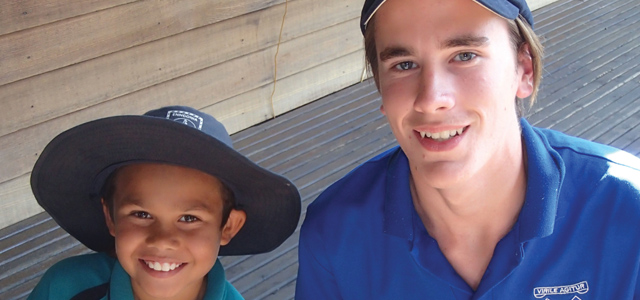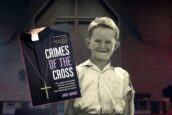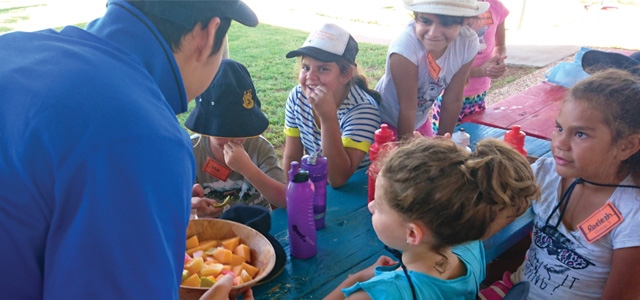
Relationships closing the gap between city and country
Do you live in the city? You do? Great. Do you know anyone that lives in the country? In particular, do you know a single soul in the remote region of New South Wales that’s out the back of Bourke?
You probably don’t know anyone who lives there, given the gap between city and country only seems to be on the increase. But an emerging Uniting Church program aims to change that, by building long-lasting relationships between far-flung communities and urban Congregations and schools.
Uniting City and Country (UCC) wants the body of Christ to act and interact across regional and social boundaries. The supportive bonds favoured by UCC seek ways to address issues such as schooling, health and other social justice concerns. As the project’s co-ordinator Julie Greig explains, UCC is an opportunity for city-based Congregations to be what they are: on a mission.
“In the Uniting Church we are very definite that Church is about mission, in lots of ways,” says Julie, who used to be a Rural Chaplain and is a beloved figure across NSW. “So, projects like this provide an opportunity for the Church to be at mission, within themselves and in other places as well.”
The UCC Project is starting to find its feet as a Synod-wide mechanism for mission. Launching a helpful website for your Congregation to explore and be inspired by, the UCC project is like a one-stop shop for relationships. “We initiate and resource the early stage of partnerships between city schools, Congregations and remote schools,” explains Greig about what UCC does. “We can provide introductions, resources, checklists, ideas and more, and then step back to allow the relationship to grow where it needs to.
“One of the wonderful things about the Uniting Church is we have a sense of social justice and we do more than just talk about it. These sorts of projects allow Congregations to do that. Many people have a heart to do things in rural areas but they don’t have a clue how to do it.”
“This project’s not so much about the ‘doing’ but it’s about helping people to establish relationships, so that they get to go and ‘do’.”
 Making a difference
Making a difference
Greig says UCC is motivated by “some of the ‘social justice’ passages” in the Bible, including Matthew 25:31-46. “For me, that’s how I have essentially defined my work,” says Greig, who was instrumental in establishing a city-country link that has become the model for UCC. Indeed, UCC has directly flowed out of a significant partnership between Pymble Uniting Church, Sydney, and the tiny town of Engonnia (90 minutes north of Bourke; 30 kilometres from the Queensland border). For almost a decade, Pymble’s “Making a Difference Out West” (MADOW) group has done many things to develop a meaningful bond with their rural friends. Along the way, other Congregations — and Uniting Church schools — have become involved, particularly Gordon.
With the backing of a Uniting grant last year, Gordon set up the Uniting Country and City steering committee. Representatives from Gordon and Pymble congregations, as well as Knox Grammar School, are part of the committee. But talk of committees and programs and planning and all that, runs the risk of overlooking what it is that MADOW — and any UCC projects like it — can achieve at the personal, heart-to-heart level.
Most of Enngonia’s small population are First Peoples and their involvement can be almost non-existent with the kinds of education, health and other services which those in urban areas can take for granted. Diane Willis is MADOW chairperson and is also part of UCC’s Steering Committee. She has seen first-hand the difference made by linking city Congregations and schools with tiny, isolated Enngonia. From providing books to organising dentists, constructing playgrounds to sending high-school students as mentors, MADOW has addressed needs of their distant friends. But Willis emphasises that this is not a one-way relationship, and the key is wanting to be part of such an intimate bond. For the long haul.
“We’ve kept going back to Enngonia,” summarises Willis about MADOW’s approach, which contrasts sharply with older models of missionary input. More than just donating money or signing a petition, MADOW (and UCC) are all about bringing skills, talent and passion to their partnership.
The MADOW visits to Enngonia have taken different forms throughout the year, just as different reasons inspire the country contingent to visit the city. “Rather than be ‘one hit wonders’, it’s about building a trust and expectation that we’re more than just do-gooders or ‘God botherers’ or anything like that,” continues Willis. “We don’t just go [because we are forced] to; we enjoy it.”
Going further
Love, commitment and genuine desire to “learn from each other” (as Greig puts it) is what UCC encourages its partners to be all about. Willis is a big fan of what MADOW has been able to provide to Enngonia, as well as the extra dimension added by Knox and Pymble Ladies College students also being involved. For the past few years, students from these Uniting Church schools have worked with Pymble or Gordon Congregations, being crucial parts of Enngonia visits or exciting camps attended by children from many remote towns.
Mini Camps and Super Camps are regularly held, allowing country kids to mix for days with their peers and older students from Sydney. These camps also represent the three UCC strands converging — the Knox and PLC students are on hand as mentors, bringing fun, learning and inspiration to a bunch of NSW children who have scarce access to such role models. Around these two strands of city and country students, city Congregation members provide behind-the-scenes help.
“One of the boys at Enngonia said to one of the boys at Knox, ‘How come you are still at school when you are this big?’ Finishing secondary school is not something they are used to,” recounts Greig about a Super Camp exchange. This neatly sums up how remote schools such as Enngonia have been loving what UCC is on about. “Kids [at remote schools] have a very narrow social world because they live in tiny villages. So they get to meet other people. The schools love that role models come.”
All those involved with the UCC project want it to roll out across our Synod. And if your Congregation is keen to get involved, yet it somehow thinks UCC is too limited by its focus upon schools, Greig reveals that the schoolyard is only the start, not the end. “The schools are a handy place for it to be because they’re there, they’re stable, but it expands into community as well.”
Congregations such as Pymble’s MADOW group have been able to expand their sights beyond the Enngonia school to look “at the broader issues and bringing their resources to it”.
As a result, the witness of the Uniting Church at the back of Bourke has been a healthy by-product of what UCC is fostering. Enngonia Public School principal Melissa Harrison is a major advocate of the UCC model, and many more schools in her area of NSW want to get involved.
With Super Camp’s being “wall-to-wall Uniting Church people”, Greig reports the “Uniting Church has a really good reputation” among schools — and their communities — who are in great need of loving, ongoing partnerships.
Ben McEachen
- Categories: Features





























































